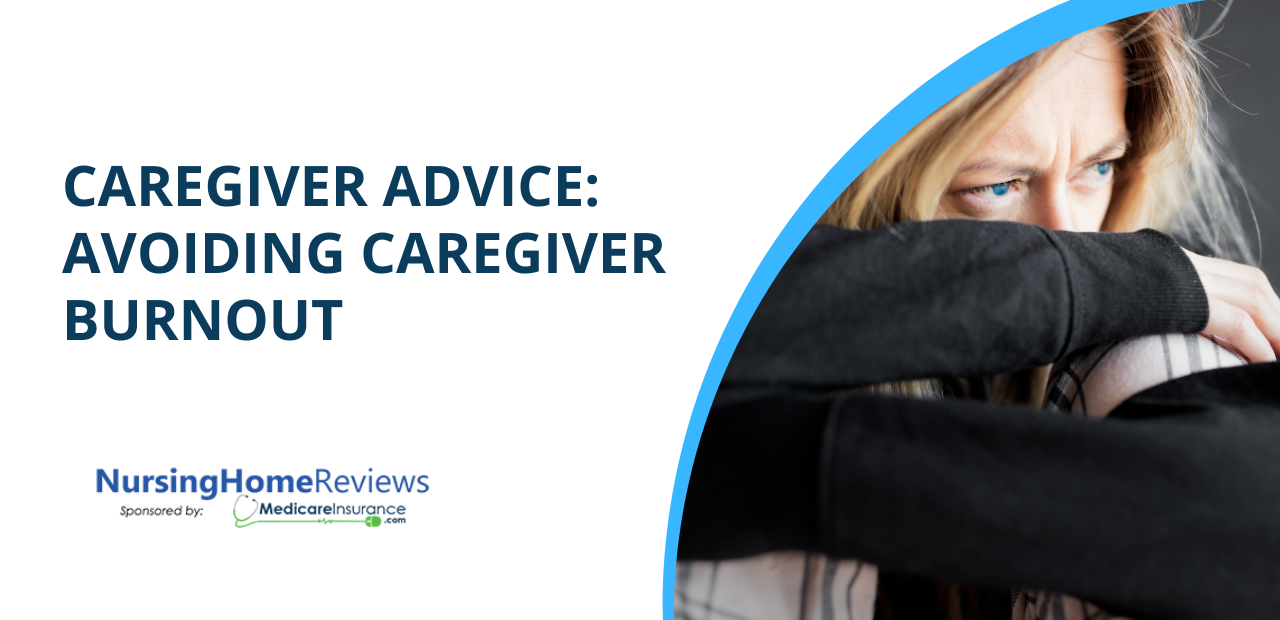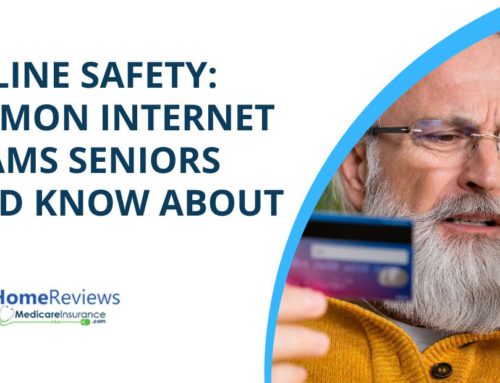
The Challenge of Caregiving
Being a caregiver is one of the most challenging tasks a person can face, especially if you’re unexpectedly thrust into the role. Seeing a loved one becoming so dependent on others for basic needs, especially if their health is in decline, can stir up many emotions. You may feel obligated to provide for them as much as possible, pouring every fiber of your being into their care. You may find yourself growing distant, seeing them as more of an obligation. You might even start to resent them, only to be filled with guilt because of your negative emotions.
If you’ve experienced any of those feelings, you may be suffering from caregiver burnout, a mental health condition that results from the stress of caring for a loved one. You’re not going crazy, you’re not failing as a caregiver, and you’re not a bad person. Just like the person you’re caring for, you’re undergoing a period of severe stress and change. You can’t care for others if you’re not caring for yourself first.
Don't take on the challenge of caregiving by yourself.
Find adult day care facilities and respite care.
What is caregiver burnout?
Burnout is mental, physical, and emotional exhaustion brought on by repeated stress. After prolonged stress, you lose your energy and vigor: you might dread specific tasks or find it challenging to muster emotions. The overall effect is feeling like a dim or flickering lightbulb: you can’t muster the energy you used to, and even if you can, it’s only for short bursts.
Burnout is common in stressful environments, like work or school. The best treatment for burnout is to remove yourself from the stressor: this can mean finding a better work-life balance, taking a vacation, or switching jobs.
The issue with caregiver burnout is that doing all of that isn’t easy, or at least doesn’t seem easy. Non-professional caregivers are often the spouses or children of those needing care. There’s history there, but also a sense of obligation. This makes detaching yourself from the situation, even temporarily, a problematic concept: how could you want to detach yourself from your husband or mother? It’s not like work burnout where you can vent about your frustration with your friends: this is a person you love. So why is it so hard?
The sad fact is that caring for someone is just as stressful as any other job, and we’re more likely to put more of ourselves into that task than we would with our other occupations. You may not want to work overtime at your salaried job, but you’d probably stay up until 3 AM caring for your sick grandmother. There’s this social expectation of being a selfless caregiver, but it’s not realistic. This, combined with the stresses of watching a loved one in decline, can wreak havoc on our mental health.
Signs of caregiver burnout

Caregiver burnout symptoms are often difficult to spot, especially if you already have depression, anxiety, or a similar mental health condition. While some of these symptoms have external manifestations, many are purely mental and often embarrassing to discuss with a doctor. Still, you should seek help if you’re experiencing any of the following.
Social withdrawal
Emotional labor is one of the most taxing forms of work, which is why people who work in customer service and retail often feel exhausted after their shifts. As a caregiver, you’re expected to perform a lot of emotional labor on behalf of the person you’re caring for, which means you have less energy to devote to your friends, family, and love life. You might also begin feeling distant from the person you’re caring for, as your emotional reserves are too empty to manifest anything more than a sense of numbness. This can lead to feelings of isolation and loneliness, which only exacerbate your condition.
Loss of interest and enjoyment
Having hobbies and interests is a normal and healthy part of life, so when you stop enjoying the things you once cared about, you may be feeling burnt out. This is for similar reasons as social withdrawal: getting excited takes emotional energy, which you may not always have to spare.
Feeling depressed, cranky, or hopeless
Do you ever wake up and think “what’s the point?” Somedays, even getting out of bed can be a challenge. These feelings of anger, sadness, and despair are your body’s natural responses to stress: you want to get away from the situation somehow, but feel as though you can’t. With no outlet, these feelings simply linger, making you feel miserable.
Changes in weight and appetite
Stress can also affect your relationship with food, which dates all the way back to our most primal instincts. Under periods of stress, our bodies release hormones that suppress hunger. Ordinarily, this helps us deal with the situation before returning to our biological needs: running from a predator is much easier when you’re not stopping for a snack, for instance.
However, prolonged stress can have the opposite effect: many people experience cravings for unhealthy foods when stressed, and eating often becomes a sort of safe haven. Eating is inherently a low-stress activity, so mindlessly going through an entire bag of chips can become an unhealthy coping mechanism.
Changes in sleep patterns
While waking up at odd hours to care for a loved one can certainly play a role in disrupted sleep, stress alone can lead to insomnia. Your hormones keep you in a state of alertness, fearful for the next threat, making truly settling down an impossibility. Alternatively, you might end up too tired, sleeping in later or falling asleep during the day.
More frequent illness
Prolonged stress can weaken your immune system, making you more susceptible to disease. This can be especially dangerous if your loved one has a weakened immune system too.
Physical and Emotional Exhaustion
Loss of sleep, combined with the large amounts of physical and emotional labor that go into caregiving, can leave you feeling fatigued. You might find yourself unable to do things you once loved, or unable to manage your emotions in a healthy way, possibly leading to difficulty regulating intense emotional reactions.
Alcohol and/or sleep medication abuse
Both of these drugs are depressants and can be used to bring a temporary feeling of respite, but abusing them (or worse, using them together) can be extremely dangerous to your health.
Desire to harm yourself or the person you’re caring for
A feeling of violent resentment is a normal symptom of burnout, often manifesting as an intrusive thought that is quickly replaced by an intense sense of guilt. Experiencing these thoughts doesn’t mean you’re a bad person, but it does require attention.
Many resources are available to help people cope with intrusive thoughts or intense feelings. You can always call 911 or the National Suicide Prevention Hotline at 800-273-8255
Who cares for the caregivers?
Caregiver burnout arises when you neglect yourself in favor of caring for a loved one. You may have heard this thousands of times, but self-care is critical to your mental health. It’s all too easy to put others first, especially in a health emergency. Taking time for yourself can feel selfish, but it’s critical to your health. Even doctors and nurses take time for themselves, after all.
Other factors that can cause caregiver burnout include:
- Role Confusion: When you cannot separate your role as caregiver from your role as spouse, child, or friend.
- Unrealistic Expectations: Your job as a caregiver is to make life easier for your loved one, not to cure their condition. Watching a loved one in decline can make you feel like your care isn’t enough.
- Getting Overwhelmed: If you’re caring for a loved one on your own, you might get frustrated over your lack of skills and resources, leading to feelings of inadequacy.
- Unreasonable Demands: Many people view caregiving as their duty alone, and refuse to ask for help, viewing it as some sort of moral failing. We’re here to tell you that it isn’t.
In order to prevent and treat burnout, you need to take time to care for yourself: this means recognizing and forgiving your own flaws and shortcomings and recognizing the difficulty of the task in front of you. Set realistic goals for yourself, and seek out help for things you feel you cannot do yourself. You won’t be able to cure your loved one’s condition, but you can improve their quality of life, even in small ways.
Taking time for yourself, even just an hour each day, is also critical. Remember to exercise and eat well, and take a moment to do things you enjoy or find relaxing. A hot bath, a walk outside, your favorite video game: any of these things can provide a much-needed respite from the stress of caregiving.
What resources are available for caregivers?

Speaking of respite, there are many services that can provide assistance with caregiving, even temporarily. While nursing homes are the most well known, many people are apprehensive about the idea, or simply prefer to have their loved ones close by. However, a nursing home does not need to be a permanent change of residence. In fact, many nursing homes and assisted living facilities offer respite care services, which are temporary stays that allow your loved one to receive care while you take time to recover. After the stay is over, they can come right back to your care.
If you need assistance on a more regular basis, adult day care and home health aides can be a good option. An adult day care is similar to a nursing home, but does not offer overnight or long-term stays. Much like day care for children, you drop your loved one off and pick them up later in the day. This allows you to maintain a career, or simply have your days to yourself. They’re also a great place for seniors to socialize and remain active.
Home health aides, meanwhile, can take on some caregiving duties in your home. They can take over completely while you rest or work, or they can provide assistance while you focus on spending time with your loved one.
Finally, if you are experiencing burnout, talking to a caregiver burnout support group, a social worker, or a therapist can help. Many areas offer caregiver-specific mental health services, which are often bundled with some of the other services mentioned above. Being open about your issue is the first step toward recovery.
If you’re looking for help caring for a loved one, our comparison tool can help you find long term and short term care facilities, giving you up to date reviews, ratings, and violation records. Enter your zip code above to begin your search.
Resources
- https://www.webmd.com/healthy-aging/caregiver-recognizing-burnout
- https://www.healthline.com/health/health-caregiver-burnout#treatment-and-prevention
- https://www.mayoclinic.org/healthy-lifestyle/stress-management/in-depth/caregiver-stress/art-20044784
- https://www.nursinghomereviews.com/2021/11/23/caregiver-advice-taking-care-of-your-mental-health/





